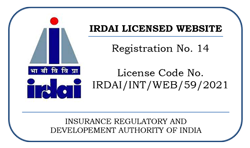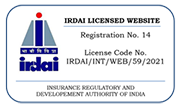Health insurance, also called a medical Insurance plan, gives you a financial safety net for both planned and unexpected hospital costs. It covers hospital stays, same-day procedures, surgeries, advanced treatments, as well as expenses before and after hospitalization. This way, you can focus on getting the care you need without stressing over hefty out-of-pocket medical bills.
What is Health Insurance?
Simply put, when you get a health insurance plan, you secure financial backing up to a set limit for any hospital costs you might face in a year. It takes care of both emergency and planned expenses like hospital stays, same-day procedures, surgeries, pre and post-hospital care, and even ambulance fees. So, having the right health insurance plan saves you from unnecessary money stress when a medical issue or emergency pops up. Plus, it lets you save on taxes under Section 80D of the Income Tax Act, 1961, on the premium you pay to the insurer.
What’s the Ideal Health Insurance Coverage?
Your health insurance plan should be customized to fit your personal medical needs and situation. A good rule of thumb is to have coverage that’s at least half of your yearly income. Make sure it’s enough to cover your medical expenses. Experts recommend getting a health plan with at least ₹10 lakhs coverage so you can handle rising healthcare costs without any hassle.
You should keep these three key things in mind while figuring out the right coverage for your health insurance plan:
- Where you live (whether it’s a tier-1, tier-2, or tier-3 city)
- Your age or life stage
- Future medical costs (keeping medical inflation in mind)
For example, if you don’t have any existing health conditions and stay in a tier-3 city where the cost of living is lower than big metro areas, a ₹5 lakh health plan might be enough to cover your medical expenses. But if you’re in a tier-1 city, where everything is pricier, or if you have a serious illness, you might need to bump up your coverage to ₹10-20 lakhs for solid financial security.
Top Reasons to Get a Health Insurance Plan
Medical costs are skyrocketing, making treatments super expensive. If you land in the hospital due to a serious illness or lifestyle-related disease, you could wipe out all your savings. The best way to afford top-notch medical care during an emergency is by getting a health insurance plan. Here’s why you should consider buying one:
- Stay Ahead of Medical Inflation – A health insurance plan helps cover your medical bills, including pre- and post-hospitalization expenses, both now and in the future, no matter how much healthcare costs keep rising.
- Get Access to Quality Treatment – It ensures you can afford the best medical care available, so you can focus entirely on getting better.
- Handle Lifestyle Diseases – Covers long-term treatments for lifestyle-related illnesses like cancer, heart conditions, and more, which are becoming more common due to modern lifestyles.
- Safeguard Your Savings – Protects your hard-earned money by taking care of your medical expenses, so you don’t have to stress about finances while getting treatment.
- Enjoy Cashless Hospitalization – Gives you access to a cashless treatment facility at any of your insurer’s network hospitals by simply raising a cashless claim.
- Save on Taxes – Lets you claim tax benefits on the health insurance premium you pay under Section 80D of the Income Tax Act, helping you plan your finances better.
- Peace of Mind – Ensures you can get the medical care you need without the worry of dealing with massive hospital bills.
Key Perks of Health Insurance Plans in India
Health insurance plans come with a bunch of benefits for policyholders, depending on the plan they choose. Here are some of the main advantages of having a health insurance policy in India:
Hospitalization Costs
Your health plan takes care of medical expenses if you're admitted to a hospital for more than 24 hours. It covers room rent, doctor’s fees, medication costs, diagnostic tests, and more.
Pre & Post-Hospitalization Expenses
It covers the costs related to your illness before you get hospitalized, as well as follow-up treatments after you're discharged. The duration of this coverage depends on what's mentioned in your policy.
ICU Expenses
If you need treatment in an Intensive Care Unit (ICU) during hospitalization, your health insurance will take care of the expenses.
Ambulance Charges
Covers the cost of using an ambulance to reach the nearest hospital in case of a medical emergency.
Cashless Treatment
Most health insurance companies in India offer a cashless treatment facility at their network hospitals. This means you won’t have to worry about arranging money for hospital bills—the insurer directly settles them for you.
Maternity Benefits
Many health insurance plans provide maternity coverage, including delivery costs, prenatal and postnatal care, and even medical termination of pregnancy. Some policies also cover newborn care and vaccinations. However, maternity benefits come with a waiting period of 3 months to 4 years.
Day Care Treatments
Covers the expenses of medical procedures that require hospitalization for less than 24 hours.
Pre-existing Illnesses
Once you complete the waiting period, your health plan will also cover pre-existing conditions. Typically, this waiting period ranges from 2 to 4 years.
AYUSH Treatments
If you prefer alternative medicine, your health insurance may cover treatments under Ayurveda, Unani, Homeopathy, Siddha, and Yoga.
Free Medical Check-ups
Most insurance companies offer free preventive health check-ups at regular intervals, depending on the terms of your policy.



.png)
